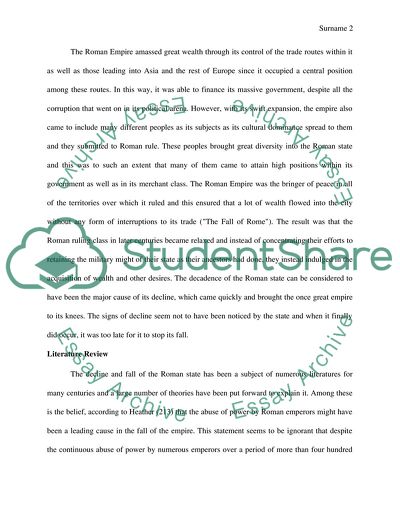Cite this document
(“Lost civilization ( the fall of Rome ) Research Paper”, n.d.)
Lost civilization ( the fall of Rome ) Research Paper. Retrieved from https://studentshare.org/history/1655923-lost-civilization-the-fall-of-rome
Lost civilization ( the fall of Rome ) Research Paper. Retrieved from https://studentshare.org/history/1655923-lost-civilization-the-fall-of-rome
(Lost Civilization ( the Fall of Rome ) Research Paper)
Lost Civilization ( the Fall of Rome ) Research Paper. https://studentshare.org/history/1655923-lost-civilization-the-fall-of-rome.
Lost Civilization ( the Fall of Rome ) Research Paper. https://studentshare.org/history/1655923-lost-civilization-the-fall-of-rome.
“Lost Civilization ( the Fall of Rome ) Research Paper”, n.d. https://studentshare.org/history/1655923-lost-civilization-the-fall-of-rome.


